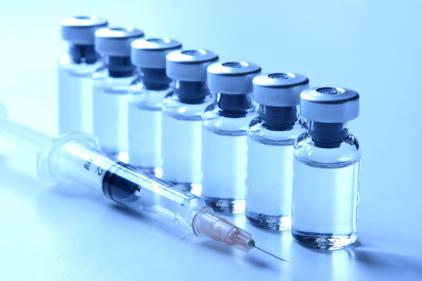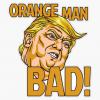
Breaking News
 LARA TRUMP: 'Barron Trump is so cool. He's like the sleeper.' dang....
LARA TRUMP: 'Barron Trump is so cool. He's like the sleeper.' dang....
 VIDEO: Trump Pledges to Abolish the Department of Education, Give Power Back to The States
VIDEO: Trump Pledges to Abolish the Department of Education, Give Power Back to The States
 Trump 'Border Czar' Tom Homan Says USA Will Send Special Ops To Wipe Out Cartels...
Trump 'Border Czar' Tom Homan Says USA Will Send Special Ops To Wipe Out Cartels...
Top Tech News
 Space-based solar power to be beamed to Iceland by 2030
Space-based solar power to be beamed to Iceland by 2030
 Airbus's Electric Air Taxi Just Made Its First Flight
Airbus's Electric Air Taxi Just Made Its First Flight
 Launch to the Stars in 2050 After 25 Years of SpaceX Starship
Launch to the Stars in 2050 After 25 Years of SpaceX Starship
 Competition to Design Human Crewed Interstellar Spaceships
Competition to Design Human Crewed Interstellar Spaceships
 See The Human Brain Like Never Before
See The Human Brain Like Never Before
 Scientists stun industry with breakthrough in energy storage technology:
Scientists stun industry with breakthrough in energy storage technology:
 Interstellar Generation Ship Propulsion Technology by 2050
Interstellar Generation Ship Propulsion Technology by 2050
 This Helium-Filled Aircraft Broadcasts Internet From the Stratosphere
This Helium-Filled Aircraft Broadcasts Internet From the Stratosphere
 No Matter Who Wins the Election, Expect the Cost of Microchips to Soar
No Matter Who Wins the Election, Expect the Cost of Microchips to Soar
 Switchblade flying car gets production redesign after first flight
Switchblade flying car gets production redesign after first flight
Vaccine 'Quietly' Pulled Off Market in 2007 Now Linked to 19 Diseases...

The thimerosal-free HibTITER pediatric vaccine marketed by Wyeth (since acquired by Pfizer) from 2003 through 2007 was linked to 19 medical conditions, according to a study by Children's Health Defense scientists. The peer-reviewed paper was published Tuesday in the International Journal of Risk and Safety in Medicine
The thimerosal-free HibTITER pediatric vaccine marketed by Wyeth from 2003 through 2007 was associated with 19 different medical conditions, according to a study published Tuesday in the International Journal of Risk & Safety in Medicine.
The conditions include life-threatening side effects at rates "significantly higher" than other Hib vaccines.
The study, by Children's Health Defense (CHD) researcher Karl Jablonowski, Ph.D., and Brian Hooker, Ph.D., CHD chief scientific officer, compared adverse events among children who received HibTITER to those among children who received other Hib vaccines.
Haemophilus influenzae type b (Hib) is a bacterium that can cause illnesses ranging from ear infections to pneumonia to meningitis. Vaccines for Hib in young children were first licensed in 1987. The Centers for Disease Control and Prevention (CDC) recommends Hib vaccines for infants at age 2 months.
Wyeth, now Pfizer, sold HibTITER from the time it was licensed in 1990 until 2007. In 2003, the company reformulated the vaccine to remove thimerosal, a type of mercury, after public outcry over the dangers of mercury in vaccines.
In 2007, Pfizer "quietly" pulled the reformulated HibTITER vaccine off the market, Hooker told The Defender — a move he said was concerning, in light of the vaccine's "relationship to many adverse events in children."
To assess those adverse events, Jablonowski and Hooker analyzed data from 277,484 children between 2003-2007 — when the thimerosal-free HibTiTER was available — using the publicly available Florida Medicaid database.
They corroborated their findings by analyzing data for the vaccine from the Vaccine Adverse Event Reporting System (VAERS), a passive public reporting system jointly administered by the CDC and the U.S. Food and Drug Administration (FDA).
The researchers identified medical conditions for infants vaccinated with any Hib vaccine within 30 days of the shot. The Medicaid data revealed 19 different diagnoses associated with HibTITER at frequencies significantly higher than those associated with other Hib vaccines. They also verified 14 of those diagnoses in VAERS.
The adverse events, ranging from mild to life-threatening, included respiratory, gastrointestinal, dermatologic and generalized infections; ear, nose and throat medical contitions; and other conditions.
None of the serious or even life-threatening conditions identified were listed as possible adverse events on the package insert for HibTITER.
The authors' findings "have profound medical implications for the estimated 35 million Americans between the ages of 16 and 33 who received the vaccine," they wrote.

 A Window into the Derangement
A Window into the Derangement

